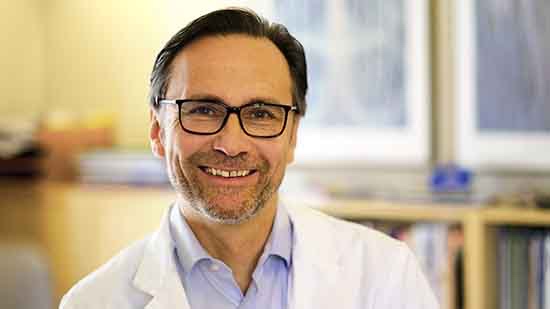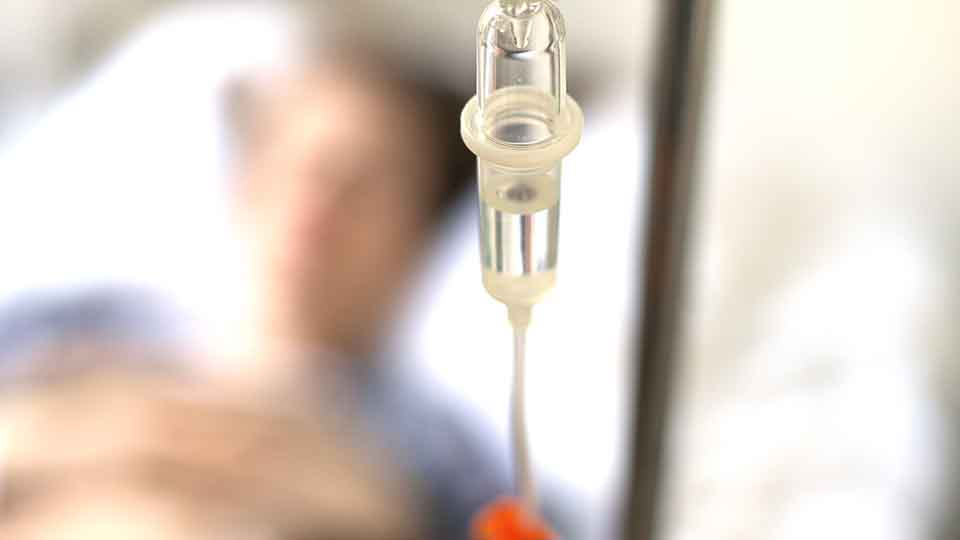Insulin-potentiated therapy for cancer
Insulin-potentiated therapy (IPT) is used for the treatment of cancer and also other inflammatory diseases, such as infectious diseases, to increase the main effect of the drugs and minimize side effects. By adding insulin, the drug dose can be reduced by improving tissue uptake, while at the same time the desired effect is enhanced or “potentiated”.
Over the past 85 years, insulin potentiated therapy (IPT) has established itself as a convincing treatment option. In cancer therapy, IPT is used as a low side effect supplement or even as an alternative to chemotherapy. Cancer cells or chronically infected tissue (e.g. in Lyme disease) are treated specifically, with minimal undesirable side effects. At Arcadia Praxisklinik, we have been successfully using insulin-potentiated therapy for several years.
Cancer loves sugar: IPT reduces the energy supply of the cancer cell
The insulin-potentiated therapy is based on the fact that cancer cells have an increased need for sugar. If the hormone insulin is administered in small quantities, the blood sugar level is lowered in a targeted and controlled manner. During the induced hypoglycemia, the active substance (e.g. the chemotherapeutic agent) is administered in an adjusted lower dose. At Arcadia Praxisklinik we use this principle and work with many years of experience in cancer treatment with IPT.
Certified IPT doctors: Exclusive knowledge for cancer treatment

IPT was developed in the 1930s by a Mexican military doctor. His son of the same name and, for decades now, his grandson Dr. Donato Garcia Perez have made insulin-potentiated therapy known throughout the world and are training doctors in the international IPT Academy.
Dr. Henning Saupe – Medical Director of Arcadia Praxisklinik – is a certified IPT physician and member of the International Academy for IPT.
Insulin-potentiated therapy: For fewer side effects in cancer therapy
Insulin-potentiated therapy can help to treat a progressive cancer with fewer side effects and thus maintain or improve the patient’s quality of life. Doctors experienced in IPT have also observed that in most cases better results can be achieved with IPT than with normal-dose chemotherapy. Despite the reduced dose, the specific effect seems to be better.
IPT treatment at Arcadia Praxisklinik
Insulin-potentiated therapy (IPT) is used at Arcadia Praxisklinik specifically for the treatment of cancer, but also for other chronic diseases. We offer two types of IPT treatment in our practice clinic: The combination of low-dose “classical” chemotherapy in combination with biological anticancer agents in infusion form or only biological anticancer infusions. Which therapy is suitable for you, we recommend on the basis of a detailed examination and diagnosis.
Interesting facts about IPT in cancer
Natural biological anticancer agents such as turmeric extract (curcumin), artemisia extract (artesunate), ginger extract (6-shogaol), vitamin C, amygdalin, boscari extract (frankincense resin), EGCG (a green tea catechin) or DCA are used intravenously within IPT therapy.
In standard orthodox chemotherapy, the limiting factor is always the general toxicity of the treatment, the low specificity of the effect on the cancer cells and the many side effects on all healthy organs, especially the blood and immune cells, but also the liver, kidneys, digestive organs and the brain (“brain fog” and “chemo-brain” describe the problem well). Solid tumor diseases can rarely be cured with chemotherapy alone.
Even IPT can do so only in rare cases. However, it can help to stop a progressive disease, reduce or bring the tumor burden under control, while maintaining quality of life.
Doctors experienced in IPT have the opinion and experience that similar or better results can be achieved with IPT than with normal-dose chemotherapy, because the dose administered is so much lower and the specific cancer-killing effect seems to be better.
Cancer cells have up to 20 times more receptors (binding sites) for insulin, our body’s own hormone for blood sugar regulation, on their cell surface than healthy cells. They also specialize in sugar utilization and take up 10-15 times more sugar per time unit than healthy cells. This fixation of cancer cells on sugar is exploited in IPT by first lowering the blood sugar by about 50-70 mg/dl by administering insulin, and then rapidly injecting a mixture of sugar and drug. In the “sugar crisis” of low blood sugar, cancer cells and also chronically inflamed and infected cells open their channels for sugar. Therefore, it is sufficient to give a dose of the drug that is only 10-30% of the normal dose to damage or kill the cells.
For this reason, IPT has little or no significant side effects and can be performed as often as is useful or needed to get the disease under control or to lead to a regression (remission).



